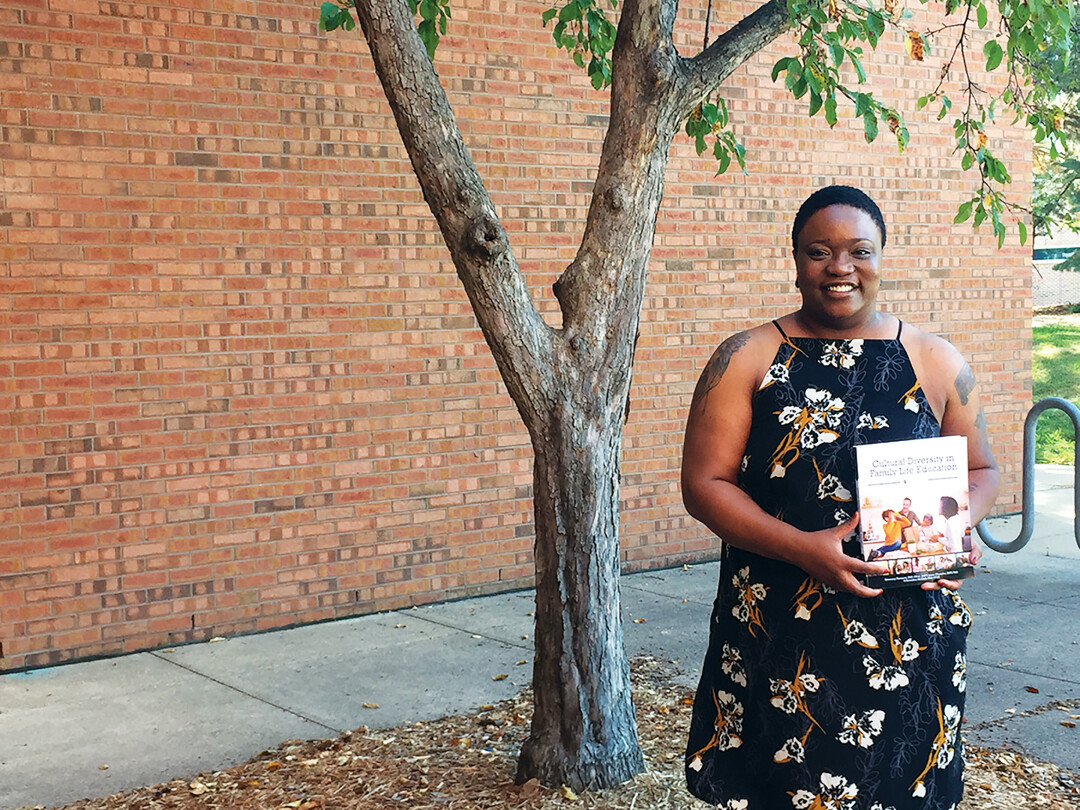Learning By Heart: UW-Stout Prof’s Textbook Covers Cultural Diversity
The collaborative work helps instructors and families de-mystify diversity

Kimmery Newsom – UW-Stout assistant professor and program director of human development and family studies – knew there needed to be a textbook to help students improve their understanding of diverse people and families and improve cultural competence. She and two colleagues – Keondria McClish and Lover Chancler – kept questioning why someone wasn’t writing a textbook to meet that need.
The three had lectured together on the topic of diversity in family life education, including speaking at the National Council on Family Relations in 2017, and decided they would collaborate.
The textbook Cultural Diversity in Family Life Education launched nationwide at the end of July.
“Learning that is personal and meaningful must take place in a culturally responsive environment."
KIMMERY NEWSOM
Co-AUTHOR OF CULTURAL DIVERSITY IN FAMILY LIFE EDUCATION
Newsom, who is starting her fourth year teaching at UW-Stout, will use the textbook in her junior-level course Critical Cultural Competence this fall.
“We want to look at the lens of diversity not just from the family side of it,” Newsom said. “Everything you do in work affects the family. We felt it would be a great tool for people who don’t have a lot of background in diversity to understand diversity and the impact on families.”
Newsom, who grew up in Nashville, Tennessee, earned her undergraduate degree in psychology, attending Kansas State University with a basketball scholarship. She went on to earn her master’s degree in marriage and family therapy and her doctorate in family life education from KSU. As a licensed therapist, Newsom knows about helping families in crisis. “Family life education is specifically focused on what we need for families to be successful,” she said. “Cultural diversity is not just race and ethnicity.”
In the introduction, Newsom wrote that the mission of the book is “to ensure diversity courses in family science programs meet the needs of our field by providing information about the unique experiences of family.” She also noted that family unit diversity has increased, and family life educators need to be prepared to work with students and parents from different cultures and family structures.
“Learning that is personal and meaningful must take place in a culturally responsive environment, one that incorporates students’ cultural and historical frames of reference to make their learning more relevant,” she wrote. “Educators who are culturally competent are more likely to teach students how to be culturally aware and responsive to those around them.”
The textbook, Cultural Diversity in Family Life Education was published by Cognella Publishing in San Diego. The book is available on Amazon.






















